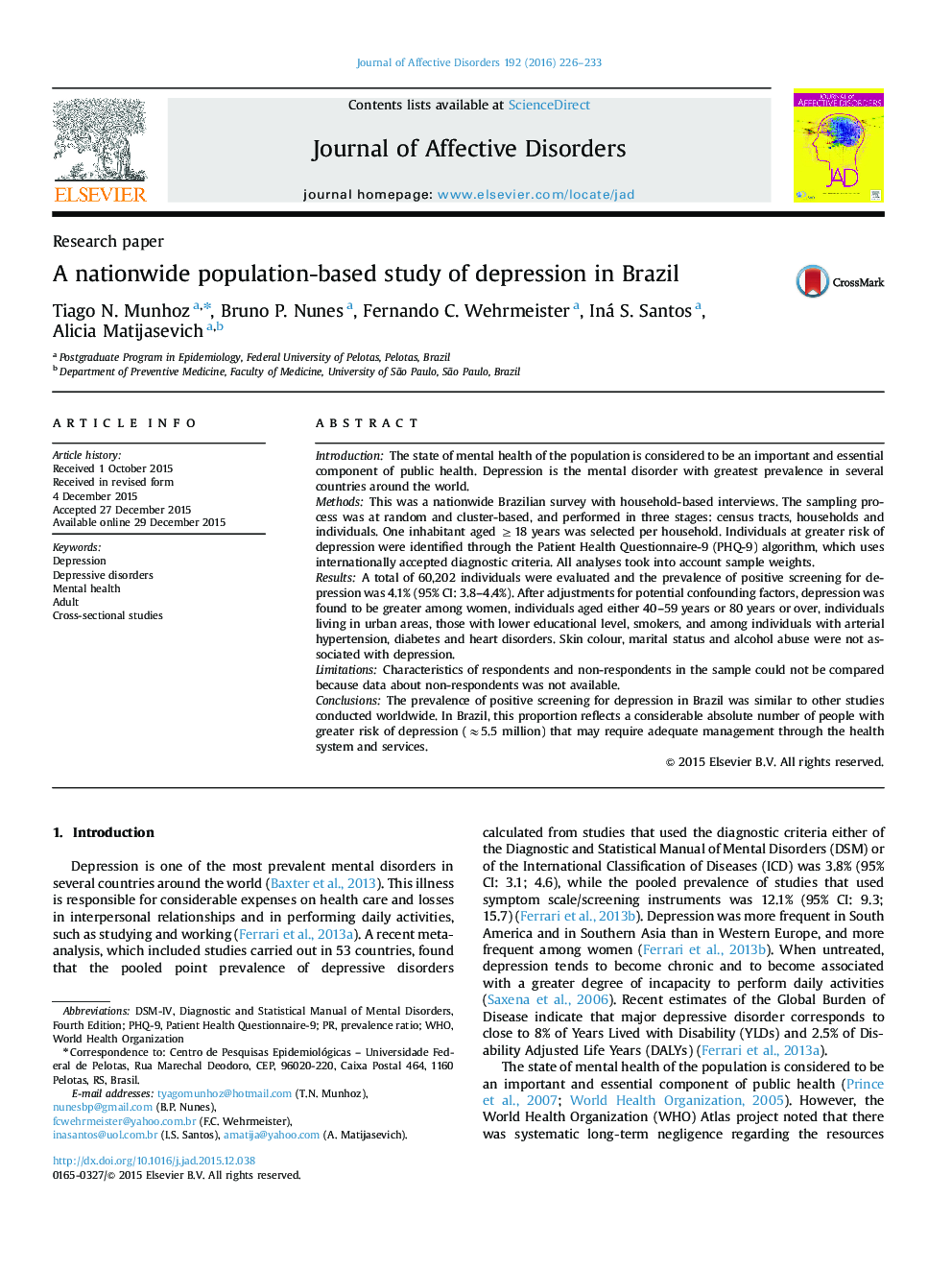| Article ID | Journal | Published Year | Pages | File Type |
|---|---|---|---|---|
| 6230637 | Journal of Affective Disorders | 2016 | 8 Pages |
â¢Nearly six million Brazilians are at higher risk of depression.â¢Depression is unequally distributed among the country's regions.â¢Women, smokers and less-educated individuals presented higher risk of depression.â¢Hypertensive and cardiopathic individuals presented higher risk of depression.
IntroductionThe state of mental health of the population is considered to be an important and essential component of public health. Depression is the mental disorder with greatest prevalence in several countries around the world.MethodsThis was a nationwide Brazilian survey with household-based interviews. The sampling process was at random and cluster-based, and performed in three stages: census tracts, households and individuals. One inhabitant aged â¥18 years was selected per household. Individuals at greater risk of depression were identified through the Patient Health Questionnaire-9 (PHQ-9) algorithm, which uses internationally accepted diagnostic criteria. All analyses took into account sample weights.ResultsA total of 60,202 individuals were evaluated and the prevalence of positive screening for depression was 4.1% (95% CI: 3.8-4.4%). After adjustments for potential confounding factors, depression was found to be greater among women, individuals aged either 40-59 years or 80 years or over, individuals living in urban areas, those with lower educational level, smokers, and among individuals with arterial hypertension, diabetes and heart disorders. Skin colour, marital status and alcohol abuse were not associated with depression.LimitationsCharacteristics of respondents and non-respondents in the sample could not be compared because data about non-respondents was not available.ConclusionsThe prevalence of positive screening for depression in Brazil was similar to other studies conducted worldwide. In Brazil, this proportion reflects a considerable absolute number of people with greater risk of depression (â5.5 million) that may require adequate management through the health system and services.
